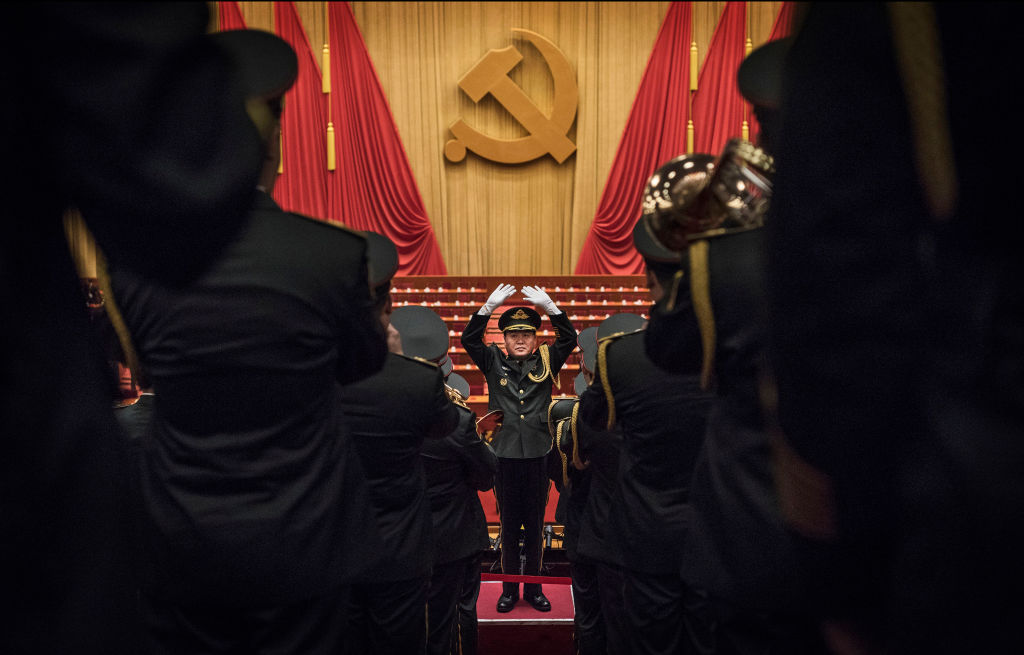Minxin Pei

As Russia’s war on Ukraine enters its fourth month, the endgame remains murky. But one thing is clear: Russia’s military has taken a beating from Ukrainian forces that, at the start of the conflict, were thought to be no match for it. For China’s People’s Liberation Army, which shares many of the deficiencies that are undercutting Russia’s effectiveness on the battlefield, this should be a wake-up call.
One such deficiency is corruption. Of the world’s 20 largest economies, Russia rates the worst in this domain. Perhaps it shouldn’t have been surprising, then, that Russia’s military—long considered one of the world’s strongest—has been severely weakened by a variety of abuses. Judging by the number of senior generals arrested for corruption in China in the past decade, the rot inside the PLA may run just as deep.
Shortly after Xi Jinping came to power in November 2012, he launched an anti-corruption drive that, by the end of 2017, had ensnared more than 100 generals. Two former vice-chairmen of the Central Military Commission, which commands the PLA, were arrested for taking bribes in exchange for promotions. Another commission member died by suicide in 2017 while an investigation into his ties to the disgraced vice-chairmen was underway.
One might be tempted to think that Xi’s campaign purged the PLA of corruption. But that’s unlikely, given that the enabling conditions—including cronyism, secrecy and lack of oversight—have hardly been eradicated.
Beyond corruption, the PLA displays similar structural weaknesses to Russia’s military, such as an obsessive focus on hardware, lack of training that simulates real combat conditions, poor logistics and a persistent failure to develop joint operational capabilities. Like the Russian military, the PLA relies on a rigid top-down command structure that makes it difficult, if not impossible, for lower-level officers and soldiers to take the initiative in combat settings.
Another key weakness of the Russian and Chinese militaries is politicisation. In fact, heavily influenced by the culture of the Soviet Red Army, the PLA is even more politicised than today’s Russian military.
After the fall of the Soviet Union, the Russian military escaped communist party control and abolished the system of political commissars. As a result, politicisation is now personalistic in nature and resembles typical patronage systems, in which unqualified individuals are appointed to senior positions. In peacetime, the consequences might seem limited to weakened morale. But, as Russia has learned in Ukraine, war exposes the extent of incompetence that patronage allows.
This doesn’t bode well for China. The PLA is under the Chinese Communist Party’s full control, and its primary mission is to defend the CCP’s political monopoly. The political commissar system created by Leon Trotsky when he established the Red Army is alive and well in China, with the appointment and promotion of PLA officers determined not only by their professional qualifications, but also by their perceived loyalty to the CCP. Even junior officers are politically vetted before receiving commissions. The result is a confusing dual-command structure, which could hobble professional PLA soldiers’ ability to fight battles effectively, as it did to the Red Army in the early days of the Nazi invasion during World War II.
A final key weakness shared by the Russian military and the PLA is their lack of combat experience. Over the past three decades, Russia’s military has fought only relatively small wars, in Chechnya, Georgia, Ukraine and Syria. This clearly did not prepare it to invade all of Ukraine, as demonstrated by its recent decision to narrow its focus and objectives to the eastern Donbas region.
Here, too, China is worse off. The Chinese military hasn’t fought a real battle since its disastrous border war with Vietnam in 1979. So, while it has invested massively in military modernisation since the early 1990s, the PLA’s competence and capabilities in combat remain untested.
If Russia has performed so poorly in Ukraine, how can the PLA—whose weaknesses, including politicisation and lack of combat experience, are even more pronounced—expect to win a war today, especially a large-scale conflict that draws in major powers like the United States? It doesn’t help that structural reforms capable of addressing the PLA’s most glaring weaknesses will be difficult, if not impossible, to implement. Depoliticising the military would entail the removal of the CCP’s organisational presence and the abolition of the political commissar system, neither of which is on the cards. And gaining real combat experience in peacetime is impractical.
The only feasible step China can take to bolster the PLA is to increase transparency considerably. If more media scrutiny had been allowed in Russia, the rot in its military would have been exposed—and probably addressed—long before it started a war that it can’t win, at least not in the quick and overwhelming manner the Kremlin expected. For Xi, the lesson is that Chinese officials must shine more light on one of the country’s most secretive institutions, precisely because they are unlikely to be satisfied with what they find.
No comments:
Post a Comment